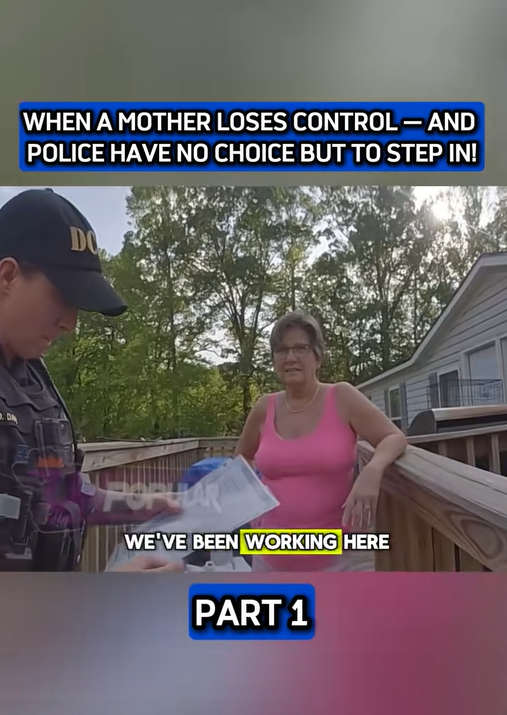It started like any other call — a report of a disturbance at a suburban home, nothing out of the ordinary. But by the time officers arrived, it was clear this wasn’t going to be routine.
Neighbors stood outside, whispering, pointing toward the small, tan-colored house at the end of the street. One woman, visibly shaken, told police she heard shouting — a woman screaming, objects breaking, and a child crying.
Inside that house was a single mother, 34-year-old Amanda Reeves.
By all accounts, Amanda had been struggling — juggling two jobs, raising three kids, and barely holding things together after a messy divorce. But that night, she lost control.
Police bodycam footage captures the moment officers approach the door.
They knock, announce themselves — no answer.
Then, suddenly, a crash.
A child’s voice crying for help.
That’s when they kick the door open.
Inside, chaos. Furniture overturned. Glass shattered. The air thick with tension. Amanda is standing in the living room, disoriented, clutching a wine bottle and shouting incoherently. Her children — two boys and a little girl — are huddled in a corner, terrified.
“Ma’am, put the bottle down!” one officer commands.
But Amanda doesn’t listen. She takes a step closer, shouting that nobody’s taking her kids away.
Her hands shake. Her voice cracks. Years of pain and exhaustion pour out in one explosive moment.
The officers try to calm her down, their voices steady, gentle — but Amanda charges forward.
In a split second, an officer deploys his taser.
Amanda collapses, screaming, then sobbing uncontrollably.
Paramedics rush in, while officers comfort the children. The bodycam captures a heartbreaking scene — a mother lying on the floor, crying out her kids’ names, as they’re gently escorted outside by child services.
Later, the police report would describe the incident as “a domestic disturbance fueled by mental and emotional distress.”
Amanda wasn’t a criminal — she was a woman pushed far beyond her breaking point.
She was taken to the hospital for evaluation, not jail.
And as tragic as it was, that night may have saved her life — and her children’s.
Because sometimes, when a mother loses control… police don’t come to punish.
They come to protect — even when it hurts.
